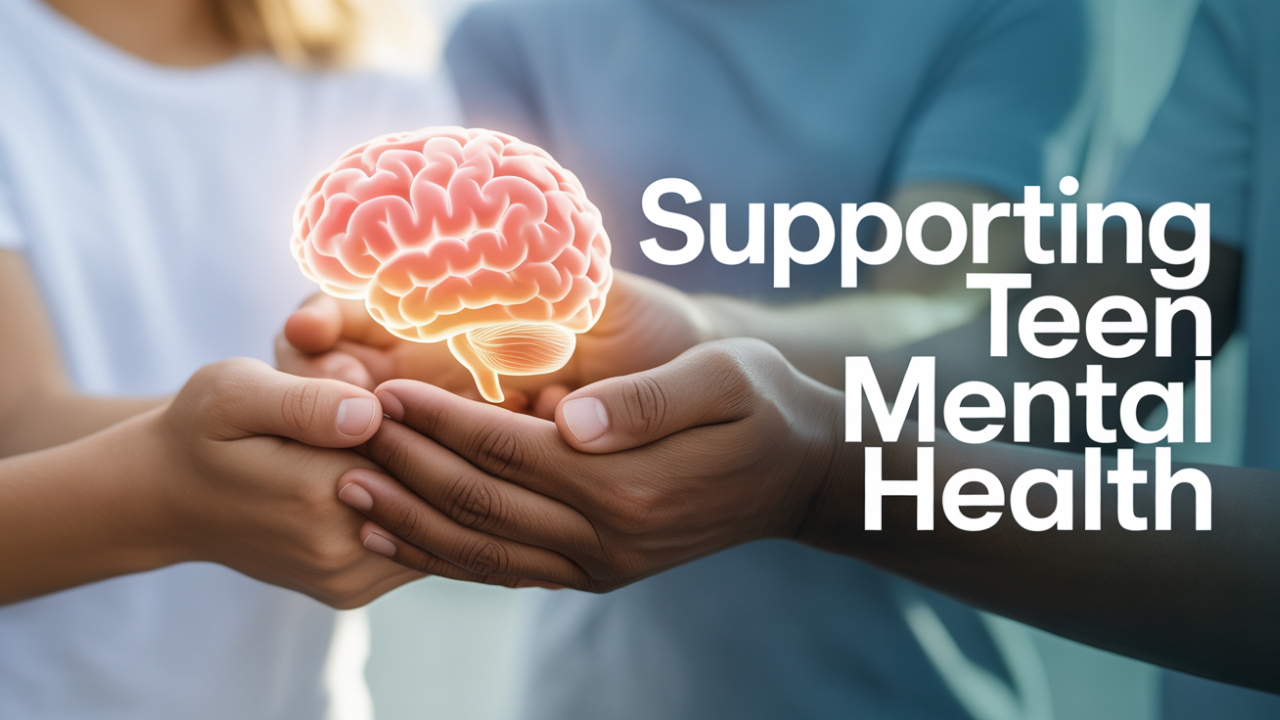Schizophrenia in adolescence can be scary, confusing, and hard for both teens and their families. This serious mental health disorder often shows up during a crucial period of brain development, especially in the late teens. It affects how a person thinks, feels, and acts. At our online treatment center based in Laguna Hills, California, we help teens with schizophrenia get the support they need.
Schizophrenia is a mental illness that changes the way a person sees the world. Teens with schizophrenia may have trouble telling what is real and what is not. This is called a psychotic disorder. It is not the same for everyone, but it often includes psychotic symptoms like hearing voices (auditory hallucinations), seeing things that aren’t there (visual hallucinations), or believing things that aren’t true (delusions).

Early signs of schizophrenia may appear months or even years before a full diagnosis. This period is called the prodromal phase. During this time, changes in a teen’s thinking, behavior, or emotions may become noticeable to parents and teachers.
Common early warning signs include:
Spending more time alone or withdrawing from friends
A drop in grades or school performance
Difficulty concentrating or remembering things
Sudden mood changes or irritability
Unusual fears, beliefs, or suspicious thoughts
A decrease in personal hygiene or motivation
Recognizing these early signs helps families seek help sooner. Early intervention can reduce the severity of symptoms and improve long-term outcomes.
The symptoms of schizophrenia can be different in every teen. Some teens have strong, sudden symptoms (positive symptoms), while others may slowly change over time.
Common symptoms of schizophrenia in adolescence include:
These signs of schizophrenia may first appear in the prodromal phase, which is the early stage before the full illness begins.

Schizophrenia is easier to manage when treatment begins early. Teens who start therapy and medication soon after their first episode of psychosis often experience fewer relapses and better social functioning.
Early treatment can:
Prevent worsening symptoms
Improve school and social life
Help families understand and support their teen
Lower the risk of long-term disability
At Adolescent Mental Health, our licensed clinicians specialize in identifying early signs of psychosis in teens. We help families find the right balance of therapy, medication, and family support.
Schizophrenia is a complex mental illness. It is not caused by just one thing. Instead, it is the result of a complex interplay between different factors.

Adolescents with schizophrenia may have trouble with school, friendships, and home life. They may struggle with emotional disorders like depression in schizophrenia or anxiety disorders. Their behavior might seem unusual or hard to understand.
They might also stop doing things they used to enjoy. They may no longer want to spend time with others or have trouble keeping up with daily tasks. The lack of motivation and emotion can lead to isolation.
Schizophrenic symptoms are often broken into three main types:
Understanding these symptoms helps in creating the right treatment plan.

We offer online treatment options for teens with schizophrenia. Early help can make a big difference. Treatment often includes a combination of medication and therapy.
These medications help reduce psychotic symptoms like hallucinations and delusions. There are typical and atypical antipsychotics. Atypical antipsychotics are often used in teens. Medication schedules are important for managing symptoms and avoiding potential side effects like weight gain or movement disorders.
Behavioral therapy helps teens cope with their thoughts and feelings. It also teaches skills for daily life and school. Therapy can include Cognitive Remediation Therapy, which helps with thinking and memory.
Family therapy teaches families how to support their teen and manage stress. Families learn about schizophrenia and how to work together.
Teens are also encouraged to take part in exercise therapy and activity during leisure time. Staying active helps improve mood and overall mental health.
Our online services let teens get help from the comfort of home. We work with adolescents with schizophrenia all across California, including Laguna Hills. Teens connect with licensed providers through video sessions. This makes treatment easier and more flexible.
Family support plays a major role in helping teens recover. Understanding the condition and creating a calm, structured home environment can reduce stress and promote stability.
Ways families can help include:
Learning about schizophrenia and treatment options
Encouraging medication adherence and therapy participation
Communicating with empathy and patience
Maintaining regular routines at home
Joining family therapy sessions to strengthen communication
At Adolescent Mental Health, we work closely with parents and caregivers to build supportive, informed home environments.
If a teen starts showing sudden changes in behavior, thinking, or mood that last for several weeks, professional help is essential. Symptoms like hearing voices, strong paranoia, or withdrawal from friends should not be ignored.
Seek immediate help if your teen:
Talks about feeling detached from reality
Expresses confusion or delusional thoughts
Reports hearing or seeing things that are not there
Becomes increasingly isolated or stops daily routines
Our licensed professionals in Laguna Hills, California, are available for confidential evaluations. We offer both in-person and online sessions for flexibility and accessibility.
Adolescent Mental Health specializes in evidence-based treatment for teens across California. Our clinical team understands how schizophrenia affects development, identity, and daily life. We provide compassionate care built around each teen’s unique needs.
What makes our program effective:
Experienced adolescent psychiatrists and therapists
Flexible online therapy sessions
Family involvement and education
Safe, supportive environment designed for teens
We help teens manage symptoms, rebuild confidence, and create a foundation for long-term stability.
Even though schizophrenia is serious, many teens can improve with the right help. We believe in each teen’s ability to grow and build a good future. Our online program is made just for teens. We meet them where they are and help them reach their goals.
Compassionate support, expert guidance, and tailored programs for adolescent mental health.
Connect with Adolescent Mental Health today. Let us guide your teenager towards resilience and well-being.
schizophrenia and teens, schizophrenia teens, symptoms of schizophrenia in teens, signs of schizophrenia in teens, schizophrenia symptoms in teens